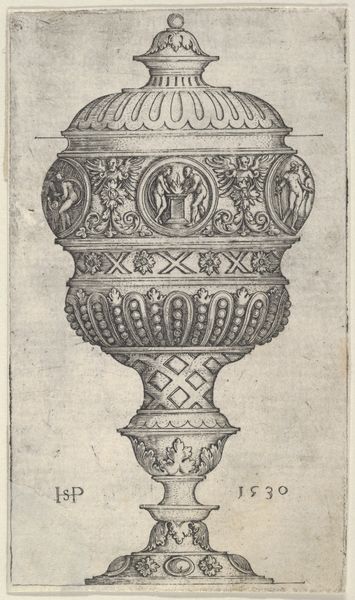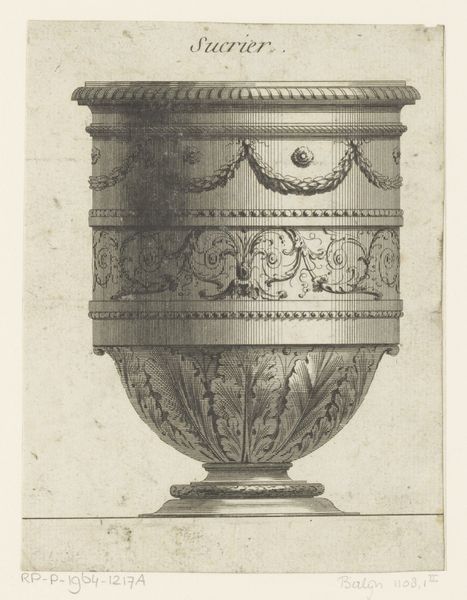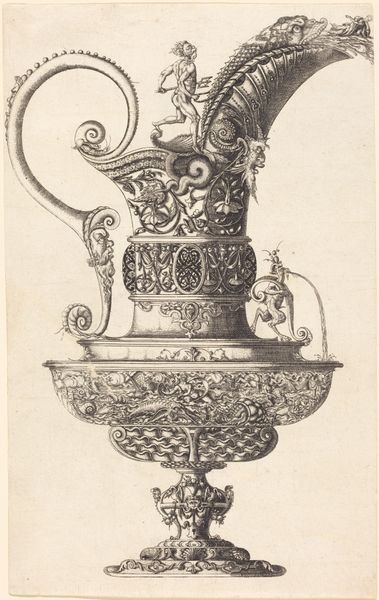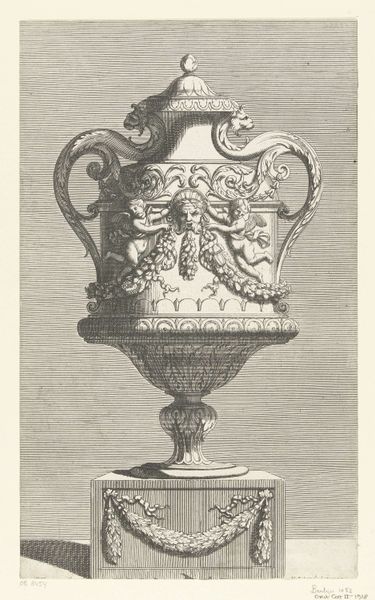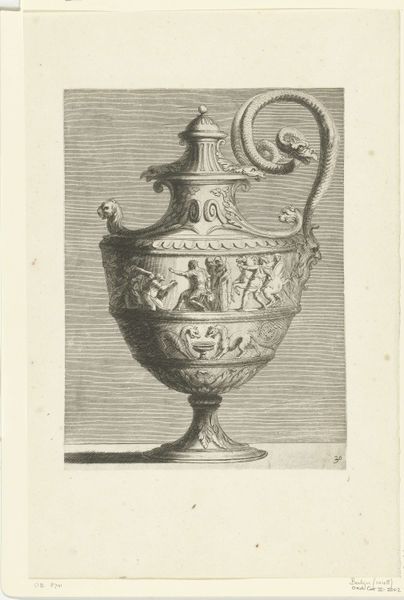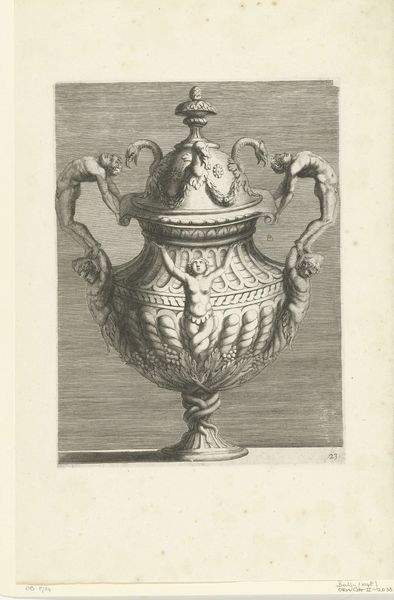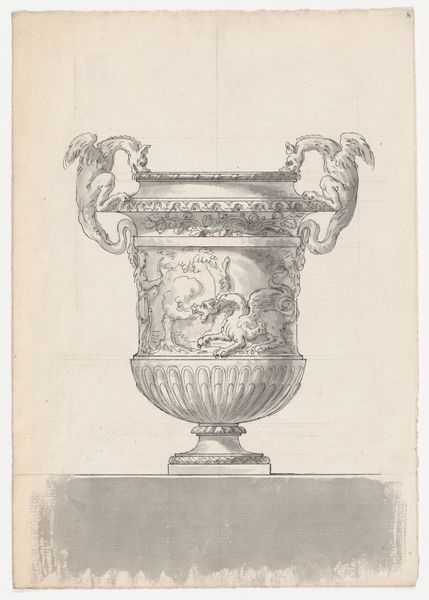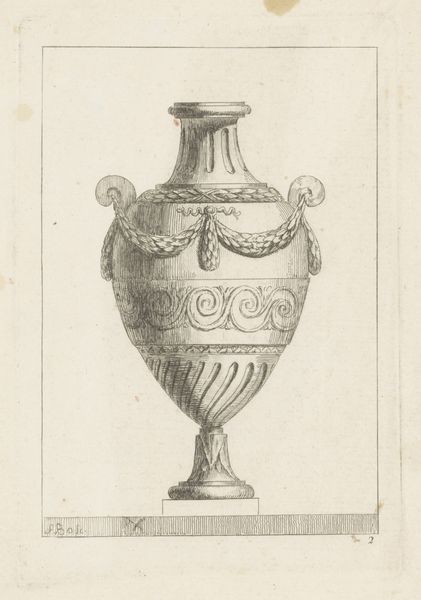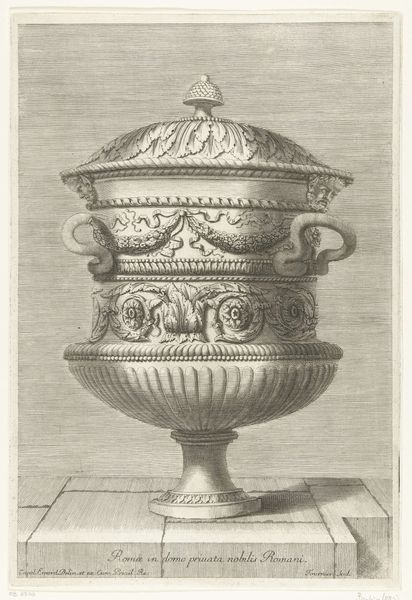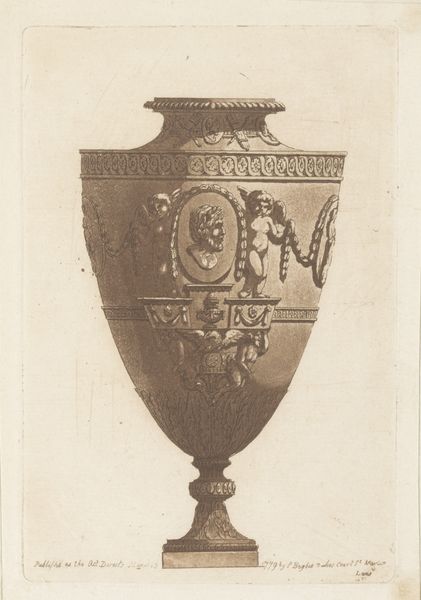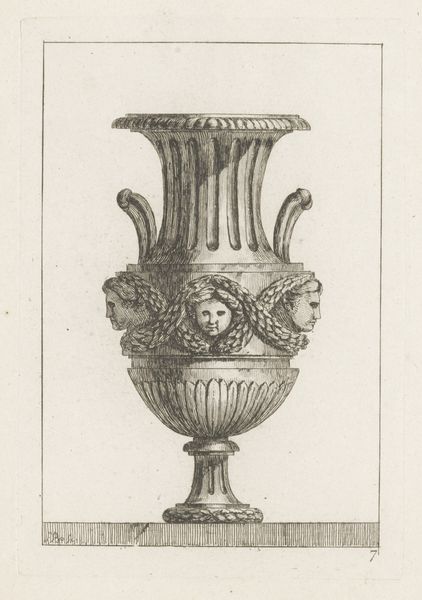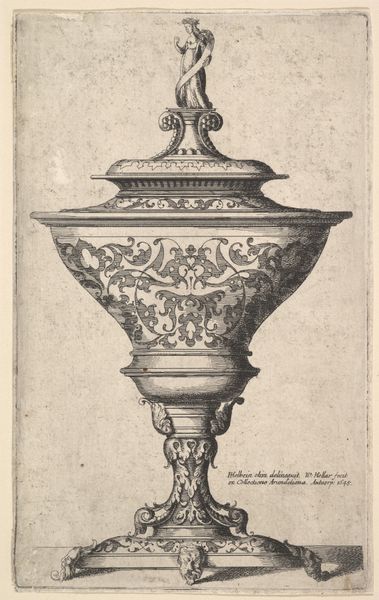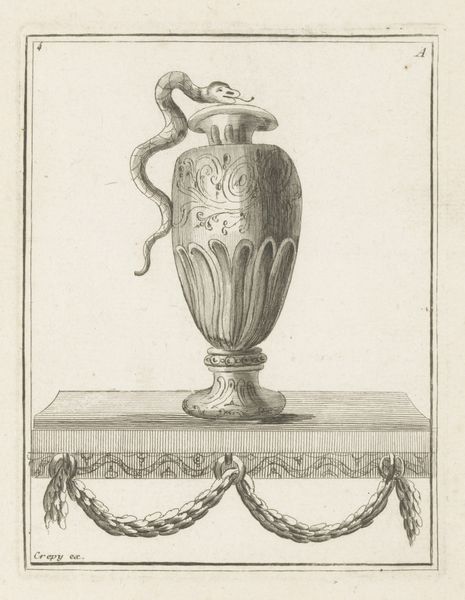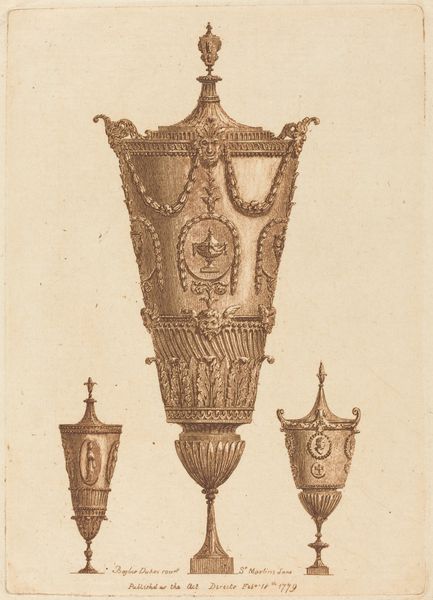
drawing, print, ink, indian-ink, engraving
#
drawing
#
neoclacissism
# print
#
ink
#
geometric
#
indian-ink
#
15_18th-century
#
19th century
#
engraving
#
italian
Copyright: Public Domain
This vase was conceived by Antonio Isopi, in Rome in 1785 as an etching. It's not a real, functional object, but rather a design proposal on paper. The etching captures a moment when neoclassical design was at its peak, with an emphasis on idealized forms and decoration drawn from antiquity. Notice how the artist is fascinated with surface textures: leaves, acorns, and birds intermingle with the Greek key pattern, offering a sumptuous array of visual experiences. The graphic process used to create this design - etching - is important. It is a printmaking technique that involves using acid to cut into a metal plate, which is then inked and printed onto paper. The crisp lines and intricate details of the etching are well-suited to the Neoclassical style. Consider also the social context in which Isopi was working. This was an era of wealthy patrons commissioning elaborate designs for their homes and gardens. The vase embodies the aspirations of a society that valued refinement, learning, and the enduring legacy of the classical world.
Comments
No comments
Be the first to comment and join the conversation on the ultimate creative platform.
